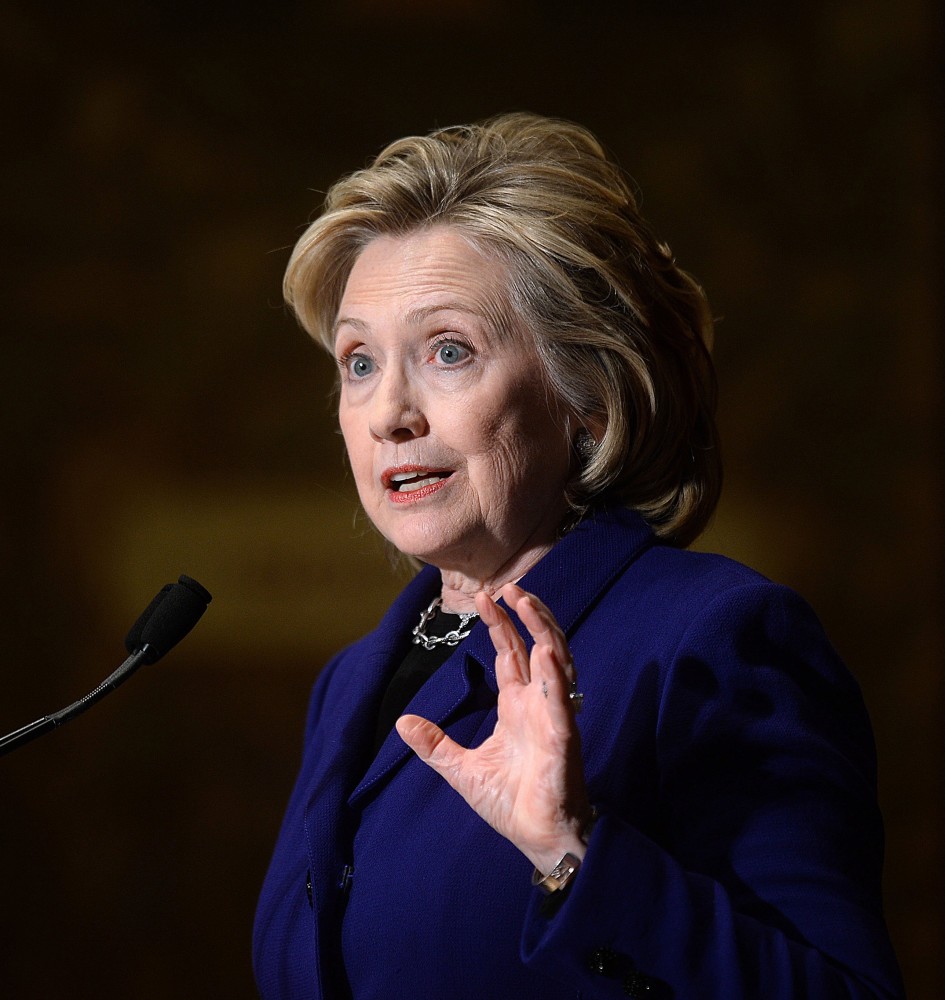By Maeve Reston
Los Angeles Times.
For decades, questions posed to Hillary Rodham Clinton have turned on the subject of hair.
But for all the eyerolls, that famous coif — in all its scrunchie-to-bob iterations — has turned out to be a very helpful talking point.
The occasion Thursday night was Tina Brown’s “Women In the World” conference in New York, and it was New York Times columnist Thomas Friedman — introduced by Brown as a “sensitive man” — who asked the former secretary of State and her co-panelist, International Monetary Fund Chief Christine Lagarde, to reflect on whether there was “still a double standard in the media about how we talk about women in public life.”
To laughter, Friedman recalled a news clip in which Clinton had said she’d flown all night to meet with a foreign leader and had tied her hair back — “and you said when you came into the room, he was really frightened,” Friedman said, “because he had heard that when your hair was back, you were going to deliver unpleasant news.”
“Really, Tom?” Clinton said with pause as the audience laughed (and Friedman rejoined that he was just moderating at the forum as a “human sacrifice”).
“There is a double standard, obviously,” she said. “We have all either experienced it or at the very least seen it. And there is a deep set of cultural psychological views that are manifest through this double standard.”
Clinton recalled that as a young lawyer she had read an advice column in an Arkansas newspaper advising male professionals to decorate their office with family pictures to show they were a “responsible, reliable family man,” while suggesting that women should not, because visitors would think “you won’t be able to concentrate on your work.”
“Some of those attitudes, we know, persist,” Clinton said at the New York summit Thursday. “And that’s why it’s important that we surface them, and why we talk about them, and help men and women recognize when they are crossing over from an individual judgment — which we’re all prone to make and have a right to make about somebody, man or woman — into a stereotype.”
“So yeah,” she added, “the double standard is alive and well, and I think, in many respects the media is principal propagator of its persistence. And I think the media needs to be more self-consciously aware of that.”
Touching on now-familiar talking points that have helped her connect with millennials, and particularly young women, Clinton said she was still concerned about the disparate attitudes of young men and women toward professional advancement.
“Too many young women are harder on themselves than circumstances warrant,” said Clinton, who is weighing a run for the presidency in 2016. “At this point in my life and career I’ve employed so many young people — and one of the differences is, whenever I would say to a young woman, ‘I want you to do this. I want you to take on this extra responsibility. I want you to move up’ — almost invariably they would say ‘Do you think I can?’ or ‘Do you think I’m ready?'”
“When I’ve asked a young man if he wants to move up, he goes: ‘How high?’ ‘How fast?’ ‘When do I start?'” she continued. “There is just a hesitancy still about women’s worth and women’s work that we’re going to have to continue to address.”














































































































































































































































































































































































